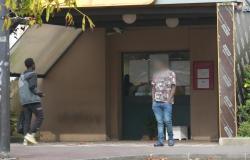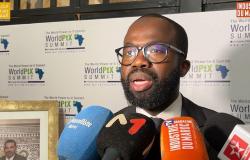The downgrading of Senegal’s rating by Moody’s from Ba3 to B1 is fueling most of the discussions during this period of preparation for the early legislative elections of November 2024.
What really happened?
To comply with the directives of UEMOA member countries, President Bassirou Diomaye Faye through his Prime Minister Ousmane Sonko decided to explain in a clear and transparent manner to the Senegalese people and financial partners the real economic and financial situation of Senegal.
One thing leading to another, we were treated to a catastrophic description of public finances through a budget deficit and a debt rate which exceed the norms and above all which were the subject of falsifications, make-up, to deceive the vigilance of the financial partners and especially the Senegalese people.
The next day, we all know the rest.
Whose fault is it?
Especially not to Prime Minister Ousmane Sonko as some would like to claim but rather to the former regime of Macky Sall.
Congratulations to the new Regime, its President Bassirou Diomaye Faye and his Prime Minister Ousmane Sonko who wanted to be part of transparent management of public finances.
Moreover, paradoxically the IMF is ready to collaborate with the State of Senegal despite the downgrade of the rating by Moody’s, which means that the confidence of financial partners is still high.
“Dioko Ndial” President Bassirou Diomaye Faye.
“ Go boat “ Prime Minister Ousmane Sonko.
The era of transparency in Senegal has dawned.
In the same vein, I propose according to my modest knowledge some solutions for an upgrade of Senegal’s rating in the short and medium term.
Leave this.
Go through debt restructuring with good installments and debt reduction by increasingly reducing variable exchange rate debt. Lower the level of external debt by using public securities on the WAEMU market. It would be desirable to continuously conduct a thorough analysis of debt sustainability to avoid overindebtedness.
The budget deficit.
A good debt management strategy in the medium and short term will be inevitable to put the indicators back on the right trajectory. It will be necessary to make a drastic reduction in public spending, propose targeting in the allocation of subsidies and finance the budget through internal resources.
Move towards formalization of the informal sector for better coverage and expand the tax base for more tax revenue. Cancel 90% of tax exemptions and be uncompromising about everyone paying tax obligations.
Diaspora.
Proceed with the mobilization of capital flows from the diaspora through the issuance of diaspora bonds by the public treasury which could be the starting point for the creation of the diaspora bank.
Establish a housing savings plan for the diaspora under the leadership of the Ministry of Urban Planning and Housing which will capitalize on money transfers from Senegalese in the diaspora which are three times higher than development aid.
Involve Senegalese people in the diaspora in the creation of joint ventures, PPPs and the financing of various development projects.
Productivity and competitiveness.
Support, finance and revive the private sector, SMEs and SMIs by creating an investment bank for more flexibility in granting credit for better productivity.
Return the trade balance to surplus by promoting exports and access to markets with strong competitiveness.
Move towards industrialization by creating industrial centers in the 45 departments to put an end to illegal emigration and the rural exodus.
Creation of a general incubator to support SMEs and SMIs and develop the culture of entrepreneurship and leadership, sell the “Made in Senegal” label.
Good governance.
The fight against corruption and good governance will be necessary pillars in establishing a viable business environment backed by a legal framework to secure foreign and national private investments.
At the current stage, it will be preferable to be vigilant with macroeconomic indicators to initiate a new turning point in relations with financial partners. The sanitation and development of other sectors such as agriculture, livestock, fishing, and digital technology will be essential for better diversification of the risk linked to the curse of raw materials such as oil and gas.
Finally, it would be a truism to ask you to give the new regime a comfortable majority in the National Assembly during the next legislative elections of November 17, 2024 as supported by the High Representative of the Head of State Ms. Aminata Touré by saying “Na niou Mottali Yéné bi”.
* By Jean Pierre Faye
MBA in Banking & Finance.
Business School University of Wales Trinity St David.
England – United Kingdom..
Coordinator MIMI 2024 England..
Member of the MIMI 2024 executive unit.






